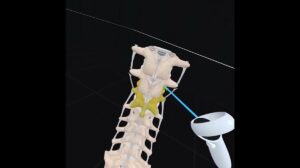NEW YORK (Reuters Health) – A small randomized study found no therapeutic advantage to high-dose vitamin D2 supplementation over and above ongoing low-dose vitamin D2 supplementation in patients with clinically active relapsing-remitting multiple sclerosis (MS).
In the study of 23 patients taking 1,000 international units (IU) of vitamin D2 daily, adding 6,000 IU daily, targeting a serum 25-hydroxyvitamin D (25OHD) concentration of 130 to 175 nM, did not reduce clinical or imaging evidence of disease activity.
Dr. Mark S. Stein, from Royal Melbourne Hospital, Parkville, Victoria, Australia, and colleagues report their study October 25 in the journal Neurology.
However, patients in the study had MS for an average of six years and ongoing disease activity. Trials of primary prevention or trials conducted at earlier stages of disease, such as first demyelinating event, may yield different outcomes, as may larger trials, the researchers emphasize.
The results might also be different had vitamin D3, instead of D2, been used.
Dr. Alberto Ascherio, of the Harvard School of Public Health, who was not involved in the study, agrees. “There is a strong rationale for a vitamin D supplementation trial (but with D3 not D2), but this would need hundreds of patients. There is at least one trial ongoing and more being planned (again with vitamin D3),” Dr. Ascherio told Reuters Health.
MS and Vitamin D
MS is more common and has been reported to have worse outcomes in association with increasing distance from the equator (less sunny climates), lower UV exposure and lower blood vitamin D levels. Vitamin D metabolites have been shown to prevent or ameliorate experimental autoimmune encephalomyelitis, a model of human MS.
“In patients with MS who continued to have attacks (relapses) despite therapies, we tested whether there was added benefit from high-dose oral vitamin D (to achieve blood vitamin D levels similar to those found in sunny climates), over and above ongoing low-dose vitamin D supplementation,” Dr. Stein noted. “We did not test the effectiveness of low-dose vitamin D alone.”
For six months, the 23 study subjects received 1,000 IU daily of vitamin D2 to prevent vitamin D deficiency; 11 also received 6,000 IU capsules of vitamin D2, while 12 received matching placebo capsules.
Median 25OHD rose from 54 to 69 nM in the low-dose group and from 59 to 120 nM in the high-dose group (P = 0.002). However, there were no significant between-group differences in cumulative number of new lesions or change in the total volume of T2 lesions on brain magnetic resonance imaging (MRI) scans, which were obtained at baseline and four, five, and six months.
Furthermore, treatment with high-dose vitamin D2 was “marginally” associated with a worse Expanded Disability Status Scale (EDSS) score at the end of the study relative to the beginning. During the study, there were four relapses in the high-dose vitamin D2 group and none in the low-dose group (P = 0.04).
The authors say more research into the effects of low- and high-dose vitamin D supplementation in patients with relapsing MS is needed.
Dr. Ascherio cautioned that a trial of this size (23 patients) is “totally inadequate and provides little information on the efficacy of vitamin D supplementation. This was almost certainly a pilot study, which probably was published only because of the unexpected result,” Dr. Ascherio said.
Reference:
Neurology 2011;77:1611-1618.




